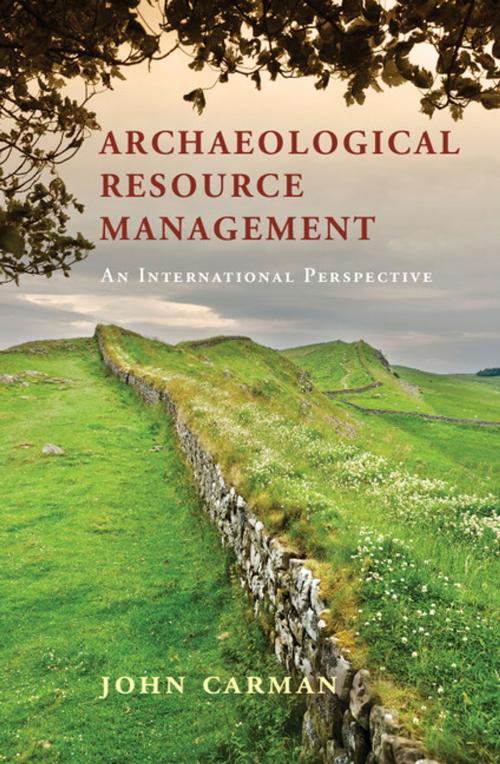Archaeological Resource Management
An International Perspective
Nonfiction, Social & Cultural Studies, Social Science, Archaeology, History| Author: | John Carman | ISBN: | 9781316403709 |
| Publisher: | Cambridge University Press | Publication: | September 9, 2015 |
| Imprint: | Cambridge University Press | Language: | English |
| Author: | John Carman |
| ISBN: | 9781316403709 |
| Publisher: | Cambridge University Press |
| Publication: | September 9, 2015 |
| Imprint: | Cambridge University Press |
| Language: | English |
Archaeological resource management (ARM) is the practice of recording, evaluating, preserving for future research and presenting to the public the material remains of the past. Almost all countries uphold a set of principles and laws for the preservation and professional management of archaeological remains. This book offers a critical and comparative perspective on the law and professional practices of managing archaeological remains. Beginning with a global history of ARM, John Carman provides an overview of legal and professional regulations governing ARM today. He then turns to consider the main practices involved in managing archaeological remains, namely, their identification and recording, their evaluation for 'significance', their preservation and their presentation to the public. As a whole, the book offers an overview of what ARM 'does' in the world, with implications for understanding the role of archaeology as a contemporary set of practices that determine how future generations will access material remains of the past.
Archaeological resource management (ARM) is the practice of recording, evaluating, preserving for future research and presenting to the public the material remains of the past. Almost all countries uphold a set of principles and laws for the preservation and professional management of archaeological remains. This book offers a critical and comparative perspective on the law and professional practices of managing archaeological remains. Beginning with a global history of ARM, John Carman provides an overview of legal and professional regulations governing ARM today. He then turns to consider the main practices involved in managing archaeological remains, namely, their identification and recording, their evaluation for 'significance', their preservation and their presentation to the public. As a whole, the book offers an overview of what ARM 'does' in the world, with implications for understanding the role of archaeology as a contemporary set of practices that determine how future generations will access material remains of the past.















